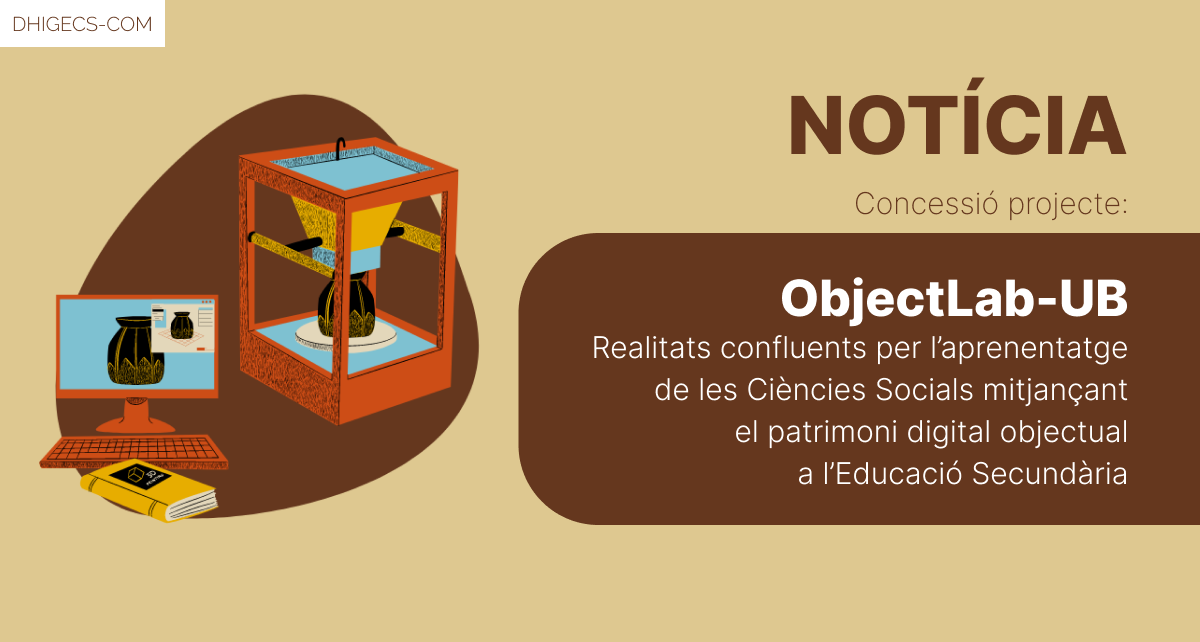The project ObjectLab-UB: confluent realities for the learning of Social Sciences through digital object heritage in Secondary Education (AS017658), is directed by the researchers Tania Martínez Gil and Carolina Martín Piñol, and has a team of teachers, archaeologists, historians, art educators and technologists from the University of Barcelona. Of particular note is the collaboration with the Global Digital Heritage Foundation, represented by Dr. Víctor Manuel López Menchero. The project is based on the methodologies of analysis of the social sciences through the use of object sources that have been digitally modelled with photogrammetric techniques and transferred to virtual repositories; all of this with the aim of raising fundamental themes of humanistic training that exist in the current curricular axes.
The creation of the virtual-object laboratory (ObjectLab-UB) aims to establish an interrelationship between objects and the contents of the compulsory secondary education curriculum, developing historical and critical thinking among students in the construction of knowledge. In short, for this project, the objectual cultural heritage, ICT and the didactics of Social Sciences (pillars of this project) form a symbiotic triangle that, properly exploited, could have highly positive effects on the learning process, establishing a bridge between the object, technology and history.
The general objectives of the research are as follows:
- GC1: To create a virtual-object laboratory, ObjectLab-UB, which establishes an interrelation between objects, the E.S.O. curriculum and the disciplinary needs of Social Sciences teachers.
- To develop a working methodology in secondary school classrooms based on the use of virtual laboratories and the acquisition of digital competences.
- OG3. Implement and ensure the level of acquisition of transversal competences linked to SDGs 4, 5, 8 and 10 within the framework of the subject of Social Sciences: geography and history.


